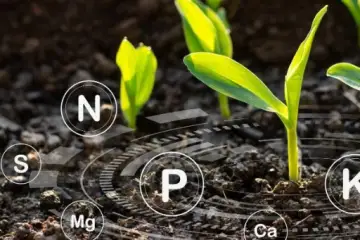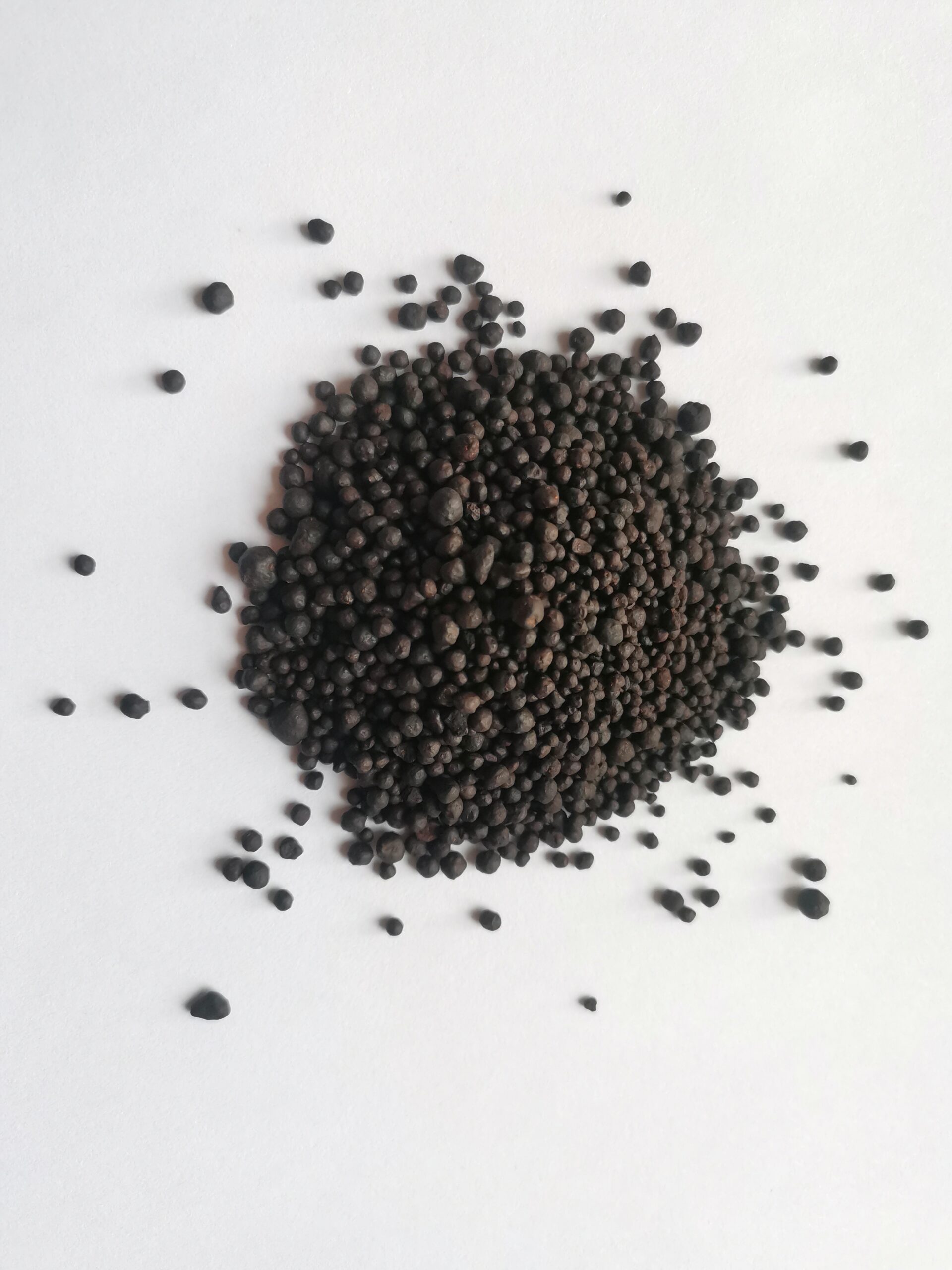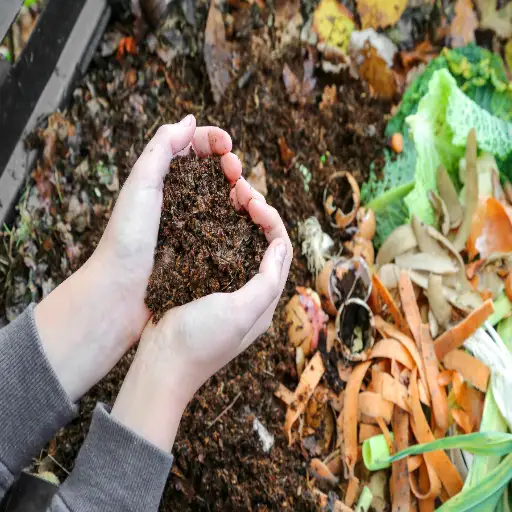Introduction: Know thy Fertilizer
The choice of fertilizer is very important in agriculture and gardening. In this regard, there are two main types of fertilizers mainly organic and synthetic each having their own advantages and limitations. Organic fertilizers are usually derived from natural sources such as plant, animal or mineral deposits, with minimal processing. They are considered sustainable and supportive to soil health. Conversely, synthetic fertilizers are manufactured through chemical processes that ensure the nutrients ratio is accurate and is readily available for plants.
Osmocote fertilizer serves as a middle option amongst these alternatives for many who pick it because of its slow release feature. What really matters about Osmocote fertilizer? It’s called organic manure? This question underscores not only what goes into the making of Osmocote but also why it should be ecologically accepted for farming purposes. The paper examines the composition of Osmocote, establishes whether it has an organic status or not, provides the benefits associated with it as well as alternative substitutes to help gardeners make informed choices regarding their fertilization strategies.
What Is Osmocote Fertilizer?
Osmocote is a controlled-release plant nutrient product that works by delivering essential nutrients over a specific period (Briggs & Buckley 2018). The composition of Osmocote is typically marked by encapsulated nutrients contained inside a resin coating that can be permeated partially (Briggs & Buckley 2018). In this way, once activated by soil temperature and moisture levels, gradual supply makes sure that plants receive steady amounts during growth stages.
The primary ingredients in Osmocote include nitrogen (N), phosphorus (P), potassium (K) which are vital for general plant wellbeing. Besides these common elements present in most compounds classified as prime fertilisers, osmocate also contains other secondary nutrients such as magnesium and calcium alongside trace elements including iron and manganese necessary for plants development themselves. The specific formulation of Osmocote is meant to satisfy diverse nutritional requirements for a broad range of plants, thus it can be used by both home gardeners and those who grow plants commercially.
The secret behind the time release capsules that differentiate osmocate from other fertilizers lies in the technology behind it. These capsules are manufactured to release nutrients at an even pace which could go for as long as one year. This timing ensures that nutrient release corresponds with natural plant growth stages leading to optimum absorption and minimal wastage.
“The controlled-release technology used in osmocate was developed to resemble how plants naturally take up nutrients,” says Dr Alan Grant, a specialist on plant nutrition. “This alone vastly improves plant health and yield while greatly minimizing the risk of nutrient runoffs usually attendant to conventional fertilizers.”
Such information is most important for gardeners who need to know if this fertilizer meets their specific cultivation needs and adheres to their sustainability goals.”
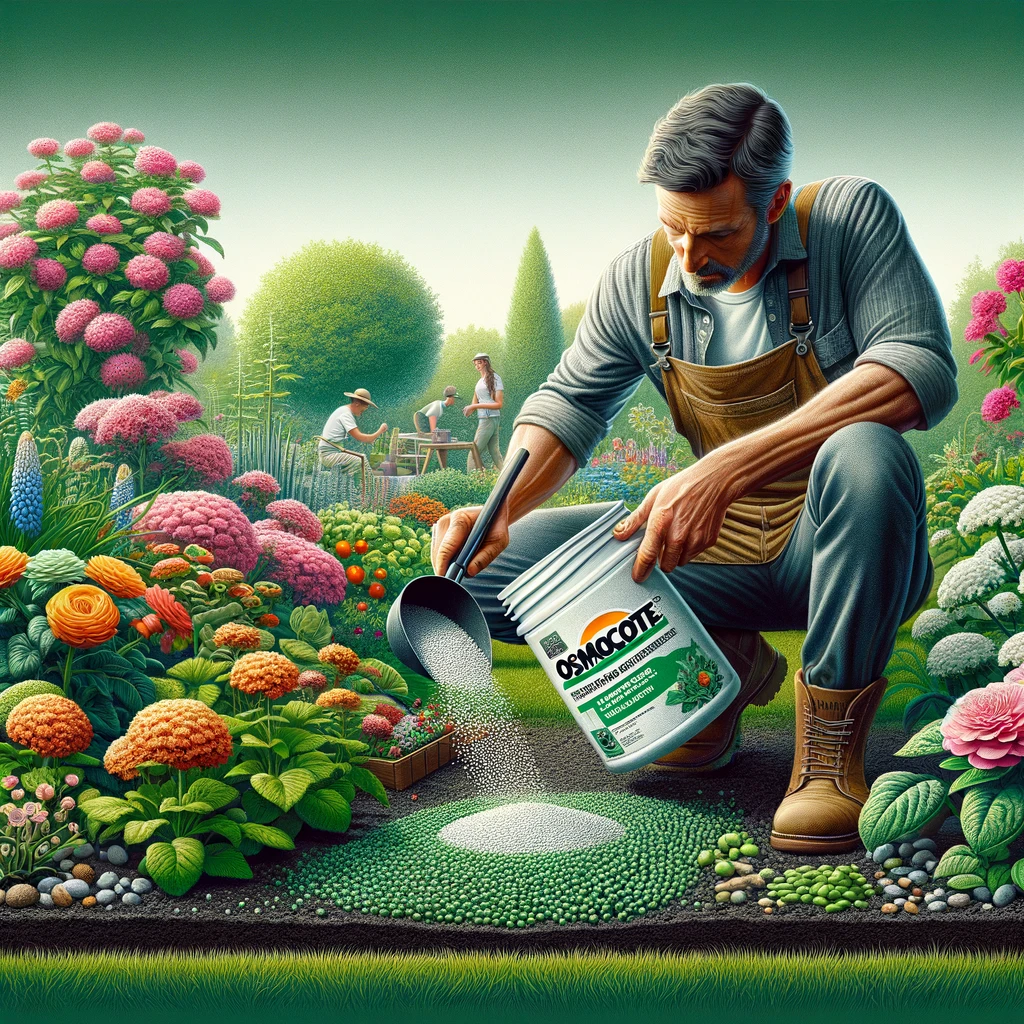
Evaluating the Organic Status of Osmocote
To determine whether Osmocote fertilizer can be classified as organic, one has to know what criteria a fertilizer must meet in order to be referred to as organic. Typically, for a fertilizer to be categorized as organic, it must come from natural sources and not contain any artificial ingredients. These substances should naturally break down in the soil thereby improving its health and promoting microbial activity without causing environmental problems.
Is Osmocote fertilizer organic? Though highly innovative due to its controlled-release technology, primarily synthetic nutrients make up much of Osmocote held within a polymer resin. The resin enables slow release of nutrients but is not derived from nature. Even though the nutrients themselves are like those found in the environment, the method of encapsulation and some artificial parts disregard most certifying institutions’ definitions of organic fertilizers such as OMRI (Organic Materials Review Institute) or similar organizations around different countries.
Moreover, this does not only involve sourcing for materials but also how they were produced and their effect on environment during manufacturing processes which include packaging and shipping too. In her book Organic Certification Standards Dr Rebecca Morris says “organic certification requires that production practices maintain soil health, ecological integrity, and people’s well-being.”
Nonetheless, while other synthetic fertilizers can leach away with ease leading to nutrient pollution especially when it rains heavily; Osmocote on its part is made up of a non-organic substance called polymer resins. This consideration sets it apart from other products that fulfill all requirements necessary for them to be certified organic.
This understanding will enable gardeners and commercial growers to make informed decisions about use of Osmocote in their gardening systems or if they need alternative products that are organically certified.
What Are the Advantages of Using Osmocote Fertilizer?
Despite not being classified as organic, osmocote fertilizer has become a leading brand in commercial agriculture and gardening because of its benefits. Here are some of the main advantages of using Osmocote in your garden:
Efficient Nutrient Delivery: Osmocote technology’s controlled-release ensures that nutrients can be delivered throughout a specific time frame that can be matched with a plant’s growth cycle. This delivery method helps plants take in nutrients more efficiently, which leads to healthier growth and less waste through runoff or leaching.
Enhanced Plant Growth: With its balanced N-P-K ratios and inclusion of essential trace elements, osmocote fertilizer leads to strong plant development. These include right root systems, more robust vegetative growths as well as better flowering and fruiting that are critical to high-yield gardening and farming.
Convenience and Ease of Use: The granulated form of Osmocote combined with it requiring lesser frequency of application makes it an easy choice for avid gardeners and farmers. It is laborious onerous to have liquid fertilizers require weekly applications but osmocotes slow release formula shortens the labor as well as time needed for fertilizing operations.
Environmental Benefits: Though not organic, when compared with some conventional synthetic fertilizer options, Osmocote does help minimize environmental damage. Its slow-release capsules prevent nutrient runoffs into nearby water bodies—a major issue with quicker-releasing synthetic fertilizers.
In order to provide this information from different perspectives, we can compare these advantages with those found in common organic fertilizers. At times, these aid soil structure improvement while enhancing soil biological activity that improves long-term soil health as well as sustainability. However, due to their precision in nutrient delivery and low labor requirement there are compelling reasons why this product is particularly suited for cases where immediate nutrient availability is paramount in specific agricultural contexts.
According to Dr. James Fielding, a sustainable agriculture expert, “Though Osmocote fertilizer doesn’t meet the organic standards, it can be an efficient and labor saving way of ensuring plants get proper nutrition throughout their growth phases especially in large scale or commercial settings.”
To sum up, while osmocote may not be an organic option; its efficient control over nutrient release, plant growth promotion and environmental preservation all make it a great tool for any gardener.
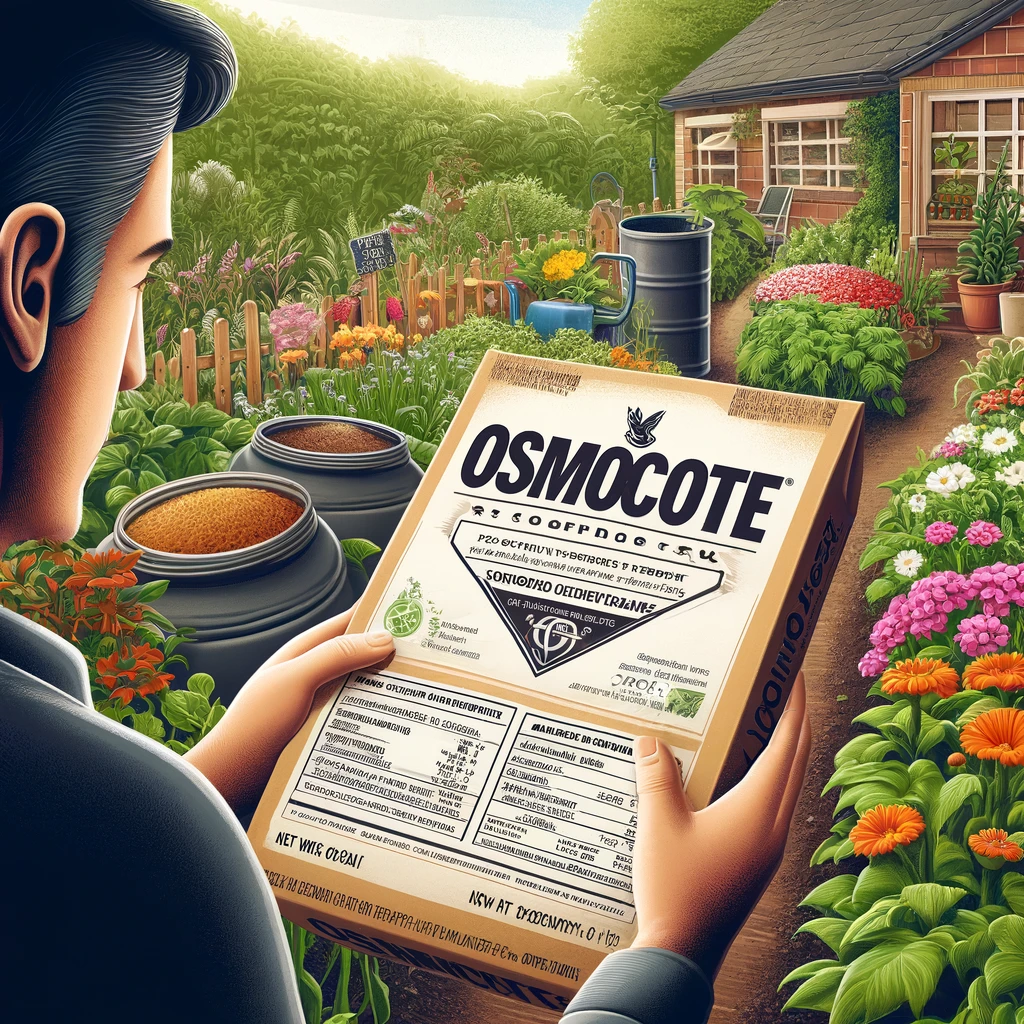
Alternatives to Osmocote for Organic Gardeners
It is important to find substitutes for osmocote fertilizer that work the same way as before, but having no artificial components in order to keep strictly organic practice among gardeners. Some good organic fertilizers can be used as alternatives instead of it and some tips on how to choose the right product for different types of plants or your gardening needs:
1. Fish Emulsion: This is a fast-acting, nitrogen-rich organic fertilizer that is good for leafy vegetables and plants requiring high levels of nitrogen. It also includes other vital minerals and when applied during growing season will provide quick uptake.
2. Seaweed Extracts: Rich in potassium and trace minerals, seaweed extracts are excellent for overall plant health promotion and stress resistance. They are particularly useful for flowering and fruit bearing plants helping to increase yield and quality.
3. Composted Manure: Well-composted manure from cows, horses or chickens has a balanced range of nutrients which makes it a good general-purpose organic fertilizer. It is especially effective at improving soil structure as well as nutrient content over long periods.
4. Bone Meal: High in phosphorus, bone meal is excellent for root crops and flowering plants. It helps strengthen root systems while supporting vigorous flower bud development.
5. Alfalfa Meal: This is another nutrient-rich source that contains particularly high amounts of nitrogen organically derived product rich in Nitrogen; moreover it provides iron and magnesium too; therefore it works well with fast-growing vegetable crops.
Choosing the Right Organic Fertilizer:
Different growth stages determine what kind of nutrients your plant needs so consider this when selecting an organic fertilizer. For instance, fish emulsion which has more nitrogen may be better suited to leafy greens whereas bone meal with higher phosphorus content would benefit root vegetables more likely.Climate Zone Map (2016). What’s My Climate Zone? Retrieved from USDA Plant Hardiness Zone Map. Look for the N-P-K ratio on the label to ensure that it matches your garden’s requirements.
Also, consider how often and by what method you’ll need to apply the fertilizer. Some organic fertilizers such as fish emulsion require a more frequent schedule than others with slow-release options like composted manure do.
As Dr. Helen Thomson, an expert in organic horticulture advises: “Choosing an organic fertilizer is not just substituting synthetic with organic but that it must be a product aimed at enhancing soil health and plant productivity sustainably while understanding soil needs and those of plants.”
By considering these alternatives and tips, gardeners can find effective substitutes from Osmocote fertilizer, which are organic in nature and will match their gardening philosophy as well as help them achieve a productive and sustainable garden.
Conclusion
Assessing whether Osmocote fertilizer is organic, we can see that it does not meet the stringent standards for organic certification as a result of its synthetic elements and manufacturing process. However, it still offers several advantages over many conventional inorganic fertilizers in terms of nutrient delivery efficiency, user friendliness and environmental safety. Nevertheless, gardeners should be aware of other options available if they are devoted to organic means.
Selecting the right fertilizer—be it organic or synthetic—is affected by various factors including the crop requirements, soil characteristics and your environmental targets and objectives for sustainability. Controlled-release fertilizers like Osmocote can be balanced against organic choices that enhance soil health and support sustainable gardening practices.
To sum up this article, there is a need to appreciate that when choosing a fertilizer, it’s not all about how plants grow now but also about future sustainability. Is osmocote an organic fertilizer? No. It could however form part of a broader strategy aimed at efficient and responsible gardening. On the contrary, alternatives proposed offer natural remedies which suit the principles of ecological gardening.
The gardeners are urged to use fertilizers discriminately while considering both their immediate impact on productivity as well as their long term effects on fertility rates and environmental implications attached to them. By knowing what they are doing, gardeners will enjoy high yields and at the same time have gardens that last forever through sustainable practices related to environment conservation. Consequently such integrated approach to fertilization will create healthier gardens leading ultimately to environmentally healthy earths.
Here are three references regarding the organic status of Osmocote fertilizer:
- Oregon State University Extension – This resource provides information on different types of fertilizers, including Osmocote, and discusses their components and uses in gardening and agriculture, which could help in understanding whether Osmocote meets organic criteria.
- University of Minnesota Extension – Offers comprehensive guides and articles on fertilizers and their application, including discussions on what constitutes an organic fertilizer, which might clarify the classification of products like Osmocote.
- Cornell University Cooperative Extension – Provides resources on sustainable gardening and the use of fertilizers, including evaluations of their environmental impact, which is crucial in determining the organic status of fertilization products.


